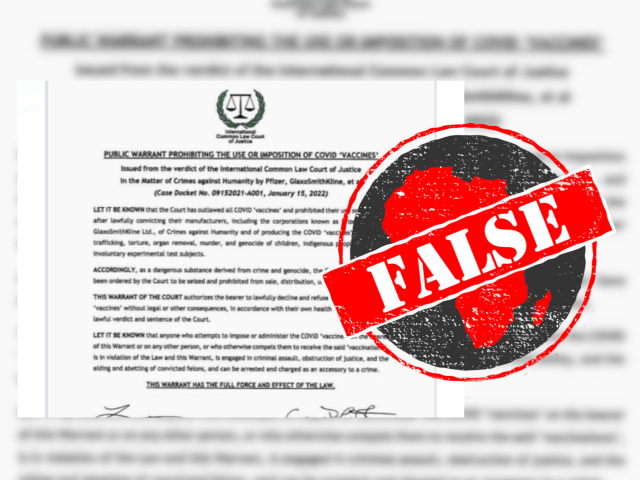A post circulating on Facebook in February 2021 quotes South African law firm Cliffe Dekker Hofmeyr as saying employers in the country may have grounds to dismiss workers for refusing to take the Covid-19 vaccine.
The post was flagged by Facebook’s fact-checking system as possibly false. But it’s true.

Balance of rights
A Covid-19 vaccination rollout is expected to begin in South Africa in February. Health minister Zweli Mkhize has said that no one will be forced to take the vaccine.
But how will employers approach the situation?
Early in February 2021, Cliffe Dekker Hofmeyr published “An Employer’s Guide to Mandatory Workplace Vaccination Policies”.
The guide explained that all employers had a duty to ensure that the working environment was safe for all staff and those who accessed their workplace. And at the time, there were no legal restrictions that would stop mandatory vaccination in the workplace.
But employees might refuse to take the vaccine due to medical objections and safety concerns, or religious, cultural or philosophical objections. If this was the case, employers could consider alternative placements or remote work, Cliffe Dekker Hofmeyr said.
If this was not possible, and an employee was therefore unable to perform their duties, an employer might be in a position to dismiss the employee.
Whether an employer does introduce a mandatory vaccination policy should be decided on a case by case basis, the legal firm said, as various rights would need to be balanced.
But the claim circulating on social media, quoting Cliffe Dekker Hofmeyr, is accurate.
Republish our content for free
For publishers: what to do if your post is rated false
A fact-checker has rated your Facebook or Instagram post as “false”, “altered”, “partly false” or “missing context”. This could have serious consequences. What do you do?
Click on our guide for the steps you should follow.
Publishers guideAfrica Check teams up with Facebook
Africa Check is a partner in Meta's third-party fact-checking programme to help stop the spread of false information on social media.
The content we rate as “false” will be downgraded on Facebook and Instagram. This means fewer people will see it.
You can also help identify false information on Facebook. This guide explains how.





Add new comment